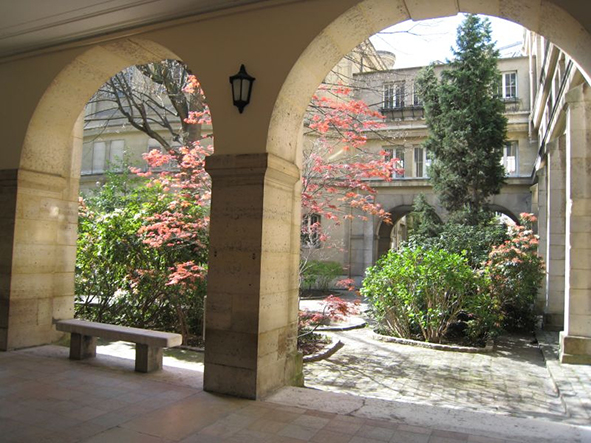In computational statistical physics, good sampling techniques are required to obtain macroscopic properties through averages over microscopic states. The main difficulty is that these microscopic states are typically clustered around typical configurations, and a complete sampling of the configurational space is thus typically very complex to achieve. Techniques have been proposed to efficiently sample the microscopic states in the canonical ensemble. An important example of quantities of interest in such a case is the free energy. Free energy computation techniques are very important in molecular dynamics computations, in order to obtain a coarse-grained description of a high-dimensional complex physical system.
We explore an extension of the classical adaptive biasing force (ABF) technique, which is used to compute the free energy associated to the Boltzmann-Gibbs measure and a reaction coordinate function. The problem of this method is that the approximated gradient of the free energy, called biasing force, is not a gradient. The contribution to this field is to project the estimated biasing force on a gradient using the Helmholtz decomposition. In practice, the new gradient force is obtained by solving Poisson problem. Using entropy techniques, we study the longtime behavior of the nonlinear Fokker-Planck equation associated with the ABF process. We prove exponential convergence to equilibrium of the estimated free energy, with a precise rate of convergence in function of the Logarithmic Sobolev inequality constants of the canonical measure conditioned to fixed values of the reaction coordinate. The interest of this projected ABF method compared to the original ABF approach is that the variance of the new biasing force is smaller, which yields quicker convergence to equilibrium.

 PDF version
PDF version
